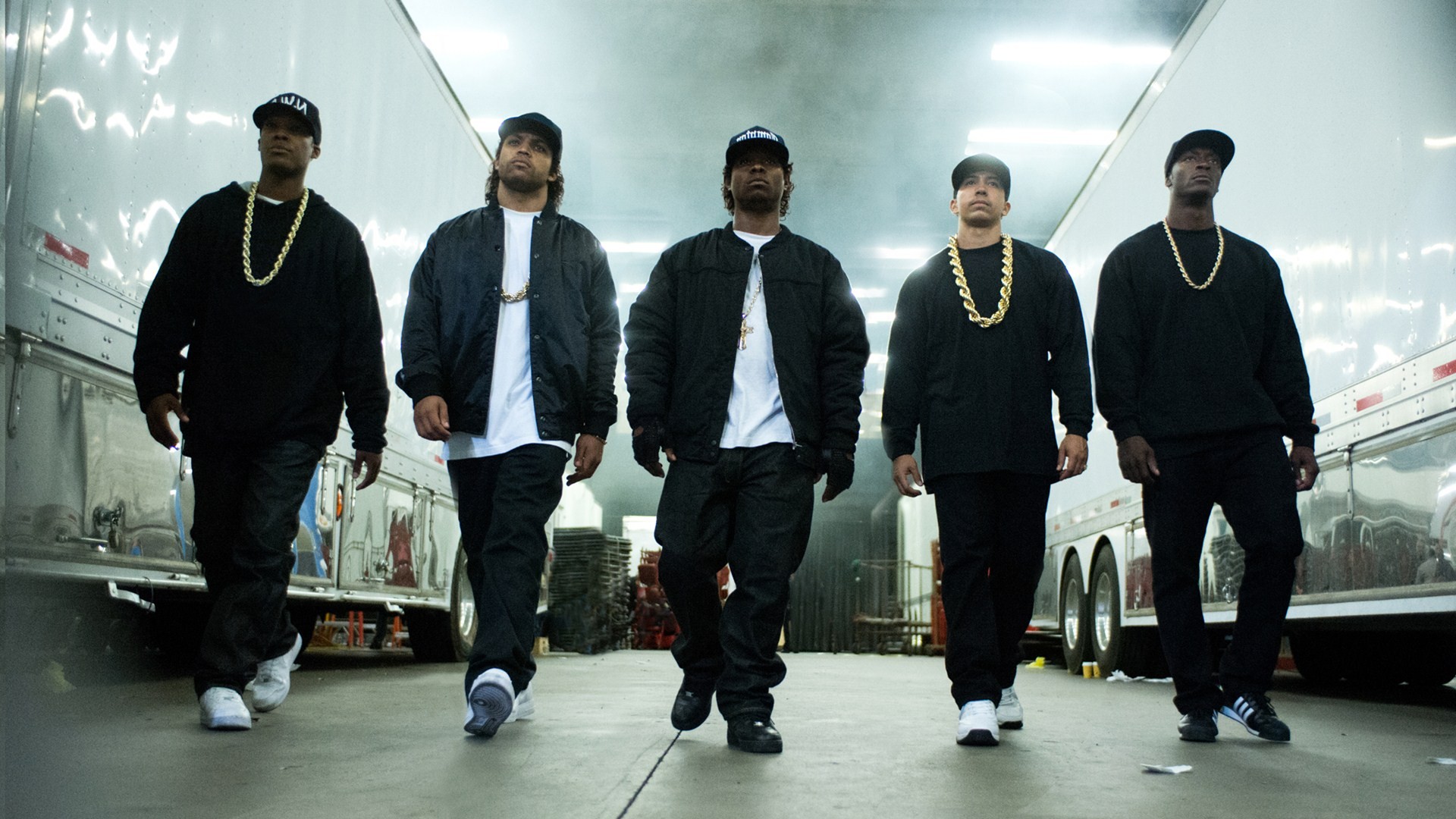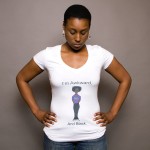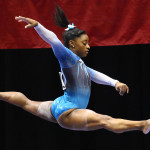I saw Straight Outta Compton the day before I arrived on campus. Because of the sensationalist nature of social media, I had already been barraged with a plethora of opinions supporting and denigrating the film. Perhaps I entered the theater already biased. Nevertheless, when all was said and done, I left with conflicting emotions. I respect N.W.A. as a pivotal music group that reflected the sentiments of an oppressed people and I recognize their biopic as a culturally important piece of Black art. However, I am not about to forgive the misrepresentation (and the blatant disrespect that comes along with that misrepresentation) of certain characters. Why is Dr. Dre made out to be the victim in all of his relationships with women, knowing full well the exact opposite is true? Where are the narratives of all the women Eazy E unintentionally put at risk of contracting HIV/AIDS? Why is almost every woman in the film topless or an embodiment of the “Angry Black Woman” stereotype? The only supportive women – Ice Cube and Eazy E’s partners – were in, at most, three scenes each.
“Misogynoir” was a term coined by a queer Black woman Moya Bailey in an attempt “to describe the particular brand of hatred directed at Black women in American visual and popular culture.” I think it’s important to analyze the overall Black experience and the Black female experience separately, especially in the realm of popular culture. Eazy E isn’t the only person who has rubbed up against the body a bodacious Black woman for the purpose of getting attention. Lest we forget Lily Allen , Miley Cyrus, Taylor Swift, and countless other white female artists fetishizing and degrading the bodies voluptuous Black women. Given the exclusion we have faced in mass media, the erasure in communities of color and on college campuses, the respectability politics (i.e. we are encouraged to dress a certain way, talk a certain way, behave a certain way in order to be taken seriously) flung at us from all sides and the immeasurable amount of unadulterated bullshit we are forced to swallow on a daily basis, I feel compelled to insert my Black girl opinion.
In light of recent so-called “discussions” about rap and misogyny between students Aaron Sibarium and Yonas Takele I feel both flattered and offended that there is an entire conversation about me and my community happening without me. Black feminist critique is either taken for granted or completely overshadowed. We are reduced to “Angry Black Women” by our male counterparts; dismissed for “just mouthing off for the sake of hearing ourselves talk.” Spoken word poet Porscha Olayiwola makes this very clear in her poem “Rekia Boyd” when she poses the question: “how tight does my noose have to wring?” Why do we only care about black girls when they are tragic or dead?
As a girl who has a very tumultuous history with hip-hop culture, I am tired of the white gaze being cast on Black issues. Hip-hop was born from a people who did not have the highest degree of formal education and did not reap the benefits afforded by racial or socioeconomic privilege. Through our desire to express the reality of our lives, we were able to create this artistry that resonates throughout all cultures. Rap, though not removed from sexist lyrics, speaks to a greater injustice perceived by the Black community. It addresses the lack of opportunity in many communities of color, and the grisly results of that inequity. And guess what? There are female rappers who speak out vocally about sexism in the music industry: Salt n Pepa, Nicki Minaj, Missy Elliot and Lauryn Hill are just a few names that immediately pop into my mind.
So, to respond to Mr. Sibarium, I am not down with white men getting praise for the work Black women have done and continue to do, nor am I amused by your attempt at a pithy tag line. My advice would be the following: Don’t insult our art and stay in your lane.
That being said, Mr. Takele, I am not down with Black men assuming they can speak for us. Y’all have got some slack to pick up. Stop silencing us. Check your privilege. Recognize this one Black girl’s soft shout.
by Ashia Ajani




Your words are powerful and unstoppable. Speak the truth and those who disagree can live within their lies!